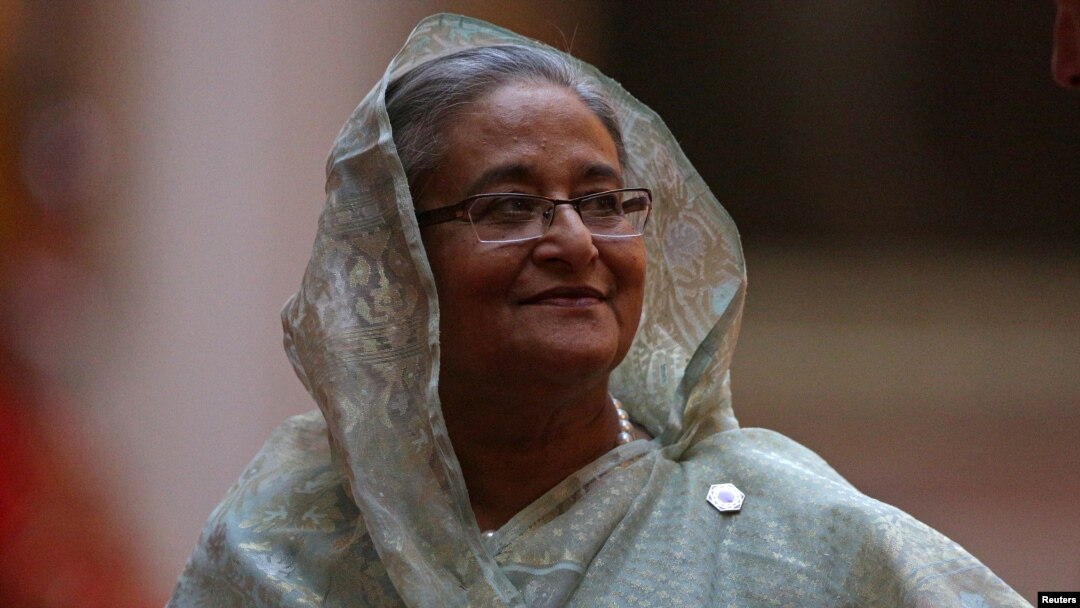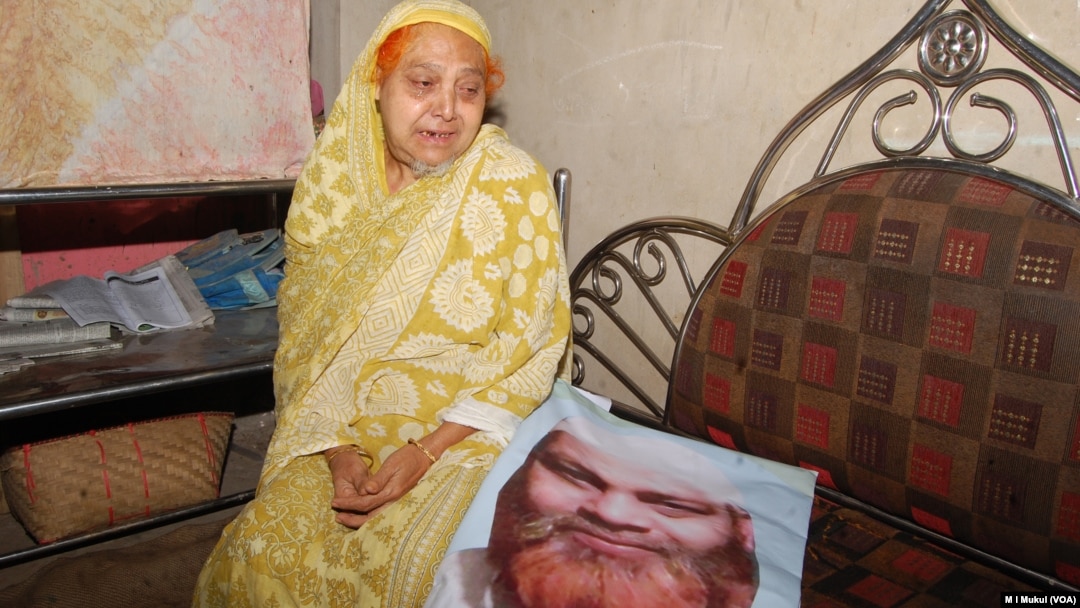Rights activists have expressed concerns that security forces in Bangladesh are resorting to extrajudicial killings in the ongoing countrywide anti-narcotics crackdown, which has left more than 115 accused drug dealers dead in the past two weeks.
While security officials insist that only drug traders are being targeted, opposition party leaders have alleged that some their BNP party workers have been shot dead by the forces during the operation, despite having no connection with drug trade.
Questions have also surfaced surrounding the claim by the security forces that the accused dealers died in crossfire or during gunfights between the drug sellers and security forces, with relatives of many of them complaining that they were killed in custody, after being arrested.
Yaba addiction
Police and anti-narcotics agencies have long been reporting a surge in drug addiction, mostly to yaba, a pill containing methamphetamine, caffeine and Phensedyl, a brand of codeine-laced cough syrup.
According to Bangladesh’s Department of Narcotics Control (DNC), every year 300 million yaba pills are smuggled into Bangladesh for use by an estimated 7 million addicts.
Two weeks ago, Bangladesh launched an all-out crackdown to end the drug menace in the country, deploying police and the elite RAB paramilitary force, or Rapid Action Battalion.

Prime Minister of Bangladesh Sheikh Hasina arrives to attend The Queen's Dinner during The Commonwealth Heads of Government Meeting, at Buckingham Palace in London, April 19, 2018.
The government has adopted a “fight to the finish” approach to end the menace, Prime Minister Sheikh Hasina said while launching the anti-drug campaign.
“We fought terrorism and became successful in that mission. In the same way we have now decided to make the country free from drugs. Our government will act hard against drug manufacturers, traders and users,” Hasina said in a meeting with officers of the security agencies.
According to the Dhaka-based human rights group Odhikar at least 124 people have been killed in the crossfire of gun battles since the crackdown began May 15. Most of the victims have been drug dealers. Authorities say they have arrested more than11,000 suspected dealers. And the mobile courts have jailed and fined more than 3,500 people.
Most of the raids are being carried out by the RAB, a controversial force that human rights groups have repeatedly accused of abuses, including forced disappearances and extrajudicial killings.
According to the RAB and police, the accused drug traders were killed when their gang-members fired upon the security forces after being challenged. But many families of the dead have contradicted the version of the security forces.
Family members of Habibur Rahman, at their Chittagong home, a day after he was killed during the ongoing anti-drug campaign in Bangladesh. The young girl is Rahman's daughter Sanjida Rahman Eva and the boy is his son. "My father was framed in drugs cases and killed in a fake crossfire all because he was a political activist opposing the government," Eva said.
Crossfire deaths
Authorities say Habibur Rahman, 42, was shot dead in his hideout in Chittagong on May 18 after his gang fired upon RAB men and they fired back in self-defense, leading to a gunfight. A statement from officials added Rahman was a known yaba peddler with 12 drug cases pending against him.
But his relatives have told VOA that men who they believe were security officers in plainclothes picked him up May 17 before he was shot dead some hours after.
“They picked up my father when he came out after praying in a mosque near our house. They took him away before shooting him dead. He was in their custody,” said Sanjida Rahman Eva, Rahman’s daughter.
She rejected the RAB statement on Rahman’s narcotics related activities as baseless.
“He was framed in the drugs cases and killed in a fake crossfire because he was a political activist opposing the government,” she said.
At least 10 of those who have been killed in the ongoing anti-drug campaign are activists of the main opposition Bangladesh Nationalist Party (BNP) and they were falsely branded as narcotics traders, said Humaiun Kobir, the party’s international affairs secretary.
“We believe the actual motive behind this killing spree is to scare and tame the democratic opposition activists in the lead up to the national elections later this year,” Kobir told VOA.
Opposition complaints
Bangladesh’s transport minister Obaidul Quader said BNP leaders should not raise their voice against this campaign at all when several of the party’s workers were involved in the drug trade.
Mohammad Ishaque lying dead in Chittagong, hours after he was killed during the early hours of May 31, during the ongoing anti-drug clampdown. Police said Ishaque was a drug peddler and died in a crossfire between police and a drug gang. But, members of his family said that he had no way been related to drugs and that he was killed because he was a opposition BNP student wing leader.
“The BNP leaders are throwing abuses at their political opponents without any reason. They never voiced their protests against terrorism and drug menace in the country,” Quader said. “They have no right to say anything on the issue of this anti-drug campaign.”
BNP official AKM Wahiduzzaman said his party never supported the drug culture and terrorism and the transport minister’s charge was baseless. He accused the government of ignoring known drug dealers associated with the ruling Awami League party.
“In January, the Director of Narcotics Control (of Bangladesh) issued a list of country’s yaba dealers. Ruling party parliamentarian Abdur Rahman Badi topped that list,” Wahiduzzaman told VOA.
Human rights concerns
Dhaka-based human rights activist Adilur Rahman Khan said Bangladesh’s anti-drug campaign is resorting to serious levels of human rights violations.
“Reports suggest the security forces are killing the people in one-sided shootouts. These are nothing but extrajudicial killings, which are leading to a culture of impunity in the society,” Khan, secretary of Odhikar, told VOA.
Mercia Bernicat, the U.S. ambassador in Dhaka, met Bangladesh Home Minister Asaduzzaman Khan on May 30 and expressed concerns over the rising death toll in shootouts during the anti-drug campaign. The government should try to put all suspected drug criminals through the process of legal prosecution, she said.
“In a democracy everyone has the right to due process. ... In our societies we are innocent until we are proven guilty. And so, everyone should be afforded that right,” Bernicat said to journalists after she met the home minister.
“I ask always that our human rights are respected and that people everywhere can have the confidence that the right individuals have been caught, the right individuals have been punished and that no one is taking the law into their own hands whether they are civilians or law enforcement (people).”
Conducting an inquiry into the killings will be difficult because the families of the victims are too scared to file any complaint, according to Hong Kong-based legal rights activist Mohammad Ashrafuzzaman, liaison officer of Asian Legal Resource Center (ALRC).
“We have authentic information that the law enforcement agencies have been threatening the families directly by asking them not to interact with human rights and media representatives,”Ashrafuzzaman said.
Several families have confirmed to VOA they will not file any complaint or attempt to seek justice.


